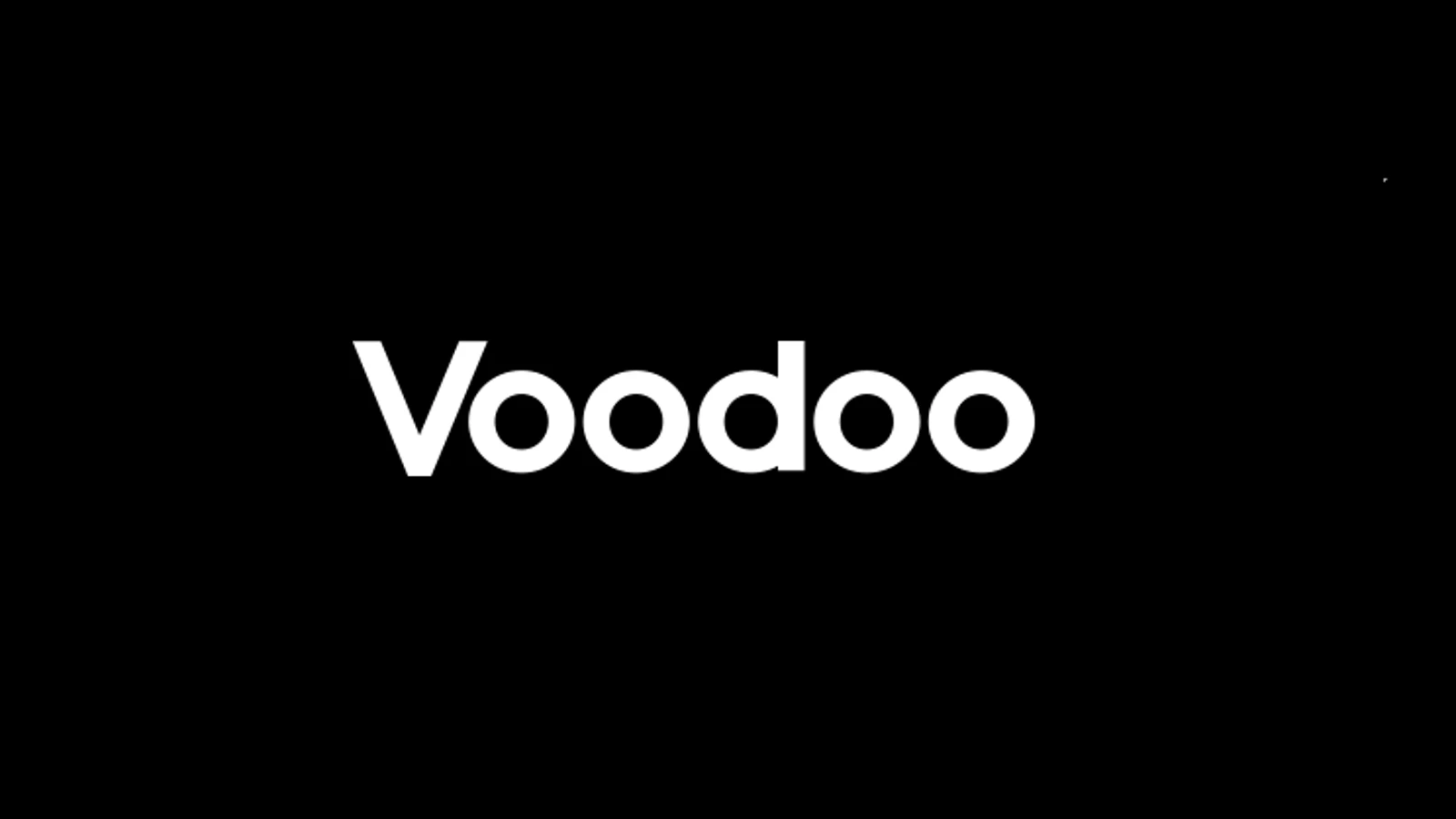Voodoo is a mobile game company based in Paris, France, best known for creating simple, addictive mobile games that reach millions of players worldwide. Founded in 2013, it quickly rose to prominence with chart-topping hits like Helix Jump, Hole.io, and Paper.io.
Today, Voodoo is also a leading game publisher, working with hundreds of partner studios to release new titles across genres. Alongside publishing, it operates as a game developer, building its own games and expanding into hybrid-casual experiences with deeper engagement and higher monetization.
In this article, we’ll take a closer look at Voodoo’s history, ownership, valuation, top games, revenue, marketing strategies, and future plans.
About the Company
Voodoo was started in 2013 by Alexandre Yazdi and Laurent Ritter in Paris, France. Their goal from the beginning was simple — make fun and memorable apps and games for everyone.
They began by making small, easy-to-play games for mobile. Over time, they became known for hyper-casual games — short, simple games that anyone can pick up in seconds. This approach helped them grow fast and reach millions of people all over the world.
Why Voodoo Matters
Leader in hyper-casual games
Voodoo didn’t invent hyper-casual games, but they helped make them popular worldwide. Games like Paper.io, Helix Jump, and Hole.io became huge hits with billions of downloads.
Massive global reach
By 2024, Voodoo’s games had been downloaded over 8.6 billion times, with about 760 million downloads in 2024 alone. This makes them one of the most successful mobile game publishers in the world.
Fast testing and improvement
Voodoo is known for quickly testing new game ideas. They see what works, improve it, and turn it into a hit. This process has helped them launch some of the most popular mobile games in the past decade.
Influence on the industry
Their success has inspired other game makers to try the same model, shaping how many mobile games are made and marketed today.
Ownership & Investors
Voodoo is a private company. It’s still run by its two founders — Alexandre Yazdi and Laurent Ritter — which means they have a big say in where the company is headed.
Over the years, several major investors have bought smaller stakes in the company:
- Goldman Sachs invested about $200 million in 2018 to help Voodoo grow faster.
- Tencent, the Chinese tech giant, bought a minority stake in 2020.
- Groupe Bruxelles Lambert (GBL), a European investment group, bought about 16% of Voodoo in 2021 for €266 million.
Voodoo has also made some big moves of its own. In 2021, it bought Beach Bum, a studio known for card and board games. In 2024, it bought the social app BeReal for €500 million, its biggest purchase so far.
Why ownership matters
Having the founders in control, along with big-name investors, gives Voodoo both stability and resources. The founders can stick to their vision, while investors bring the money and connections needed for big acquisitions and expansion into new areas, like hybrid-casual games and social apps.
Team Size & Offices
Voodoo employs around 750 people worldwide.
Its headquarters in Paris spans 61,000 square feet, designed to accommodate up to 500 employees. Beyond Paris, Voodoo operates offices and studios in Montpellier, Strasbourg, Berlin, Istanbul, Montreal, and across Asia, including Singapore and Japan. This global presence supports both game development and publishing operations.
Voodoo Valuation
Voodoo’s value has grown quickly thanks to its massive audience and steady flow of hit games.
- In 2020, when Tencent bought a stake, the company was valued at about $1.4 billion.
- In 2021, GBL’s investment put the company’s value at around €1.7 billion (about $2 billion at the time).
Why the Value Grew
The big jump in value came from Voodoo’s success in hyper-casual gaming between 2017 and 2020. They were releasing hit after hit, often topping global download charts. By 2021, the company started shifting toward hybrid-casual games — games with simple mechanics but deeper features to keep players engaged longer. This new focus aimed to make each game more profitable over time.
Publishing Model & Developer Ecosystem
Voodoo’s publishing program works with independent studios around the world. Since launch, they’ve partnered with over 2,000 studios, with about 75% of released titles coming from these external partners.
Internally, the company’s structure is built around two main teams:
- Core Games Team – focuses on development, partnerships, and launching new titles.
- Live Games Team – manages long-term player engagement, updates, and monetization for existing games.
This dual approach ensures a steady pipeline of new releases while maintaining strong performance from established hits.
Top Voodoo Games
Over the past decade, Voodoo has published hundreds of mobile games, but only a select few have truly defined its brand and driven its massive download numbers. These titles not only topped app store charts but also set trends in mobile game design.
Paper.io (2016)
A competitive territory-capture game where you draw lines to claim space on the map. Simple controls and quick matches made it a lasting hit in the .io genre.
Helix Jump (2018)
A fast-paced arcade game where you guide a bouncing ball down a spiral tower. Known for its addictive gameplay loop and high replayability, it became one of Voodoo’s most downloaded titles.
Hole.io (2018)
A physics-based arcade game where you control a black hole, swallowing everything in sight to grow larger. Its unique concept and “battle royale” feel helped it dominate global download charts.
Aquapark.io (2019)
A colorful water slide racing game where players can bump opponents off the track or take risky shortcuts through the air. The mix of speed and playful competition kept it high on the charts.
Mob Control (2021)
Mob Control is one of Voodoo’s first successful hybrid-casual titles, blending simple gameplay with deeper progression systems, challenges, and upgrades. It became a long-term revenue driver for the company.
Block Jam 3D (2022)
A puzzle game that continued Voodoo’s hybrid-casual push. With more complexity and longer engagement than their earlier hyper-casual hits, it showed how the company was evolving its portfolio.
Voodoo Revenue
All-Time Revenue
Voodoo has generated $270 million in lifetime in-app purchase (IAP) revenue from 8.6 million downloads.
Publicly reported figures show total company revenue far higher when including advertising, publishing fees, and other streams, with €623 million in 2024 alone.
Year-by-Year Breakdown
2022
- IAP revenue: $15.5 million
- Total revenue (all sources): Not publicly disclosed.
2023
- IAP revenue: $50 million
- Total revenue: $570 million.
2024
- IAP revenue: $94 million
- Total revenue: €623 million (~$680 million).
2025 (to date)
- IAP revenue: $67 million (as of latest data)
- Total revenue: Not yet reported.
Voodoo’s revenue growth over the past few years shows two clear trends. First, in-app purchases are becoming a much larger part of the business, climbing from $15.5 million in 2022 to $94 million in 2024. This shift aligns with the company’s move from hyper-casual to hybrid-casual games, which encourage longer play sessions and deeper monetization through upgrades, cosmetics, and progression systems.
Second, total revenue figures reveal the continued dominance of advertising and other non-IAP streams. Even with strong IAP growth, the vast majority of Voodoo’s earnings still come from ad-based monetization. In 2024, IAP made up roughly 14–15% of total revenue, a significant increase from earlier years but still a secondary stream compared to ads.
If current trends hold, Voodoo’s hybrid-casual strategy could push IAP toward a quarter or more of total revenue in the next few years, creating a more balanced and sustainable model. This diversification reduces the company’s reliance on large download volumes alone, which is crucial as competition for user attention intensifies.
Marketing and User Acquisition
Voodoo’s marketing success comes from combining rapid game testing with data-driven user acquisition (UA). The company built a system where hundreds of game prototypes are tested each year. Only those that meet strict retention and cost-per-install (CPI) benchmarks move forward to full launch.
Once a game proves it can attract users cheaply, Voodoo invests heavily in UA across major ad networks, using creatives designed for quick, eye-catching engagement. This fast iteration cycle allows them to scale hits while dropping underperformers early.
For hybrid-casual titles, Voodoo adds live operations (live ops) and deeper progression to increase lifetime value (LTV). The marketing team then shifts from short-term install campaigns to ongoing engagement ads, keeping players active for months instead of weeks.
The company also benefits from cross-promotion. With billions of lifetime downloads, Voodoo can advertise new games directly inside its existing portfolio, giving new titles a boost from day one.
Beyond games, acquisitions like BeReal and Wizz show that Voodoo is applying its marketing expertise to social apps. These products can be monetized through both ads and subscriptions, opening new long-term growth opportunities.
What’s Next for Voodoo?
Voodoo’s next phase is centered on hybrid-casual games and consumer app expansion.
The company has made it clear that it plans to release fewer games each year but with deeper mechanics, stronger retention, and higher monetization potential.
Publicly, Voodoo has set a target for hybrid-casual titles to reach $100 million in lifetime revenue each, which would put them on par with top-tier mobile hits.
The acquisition of BeReal in 2024 for €500 million is one of the clearest signals of this broader strategy. BeReal, known for its unique photo-sharing format, expands Voodoo’s reach beyond games into social media. Voodoo has already stated that the app is now operating at break-even, suggesting monetization improvements are in motion, likely through ads and premium features.
Alongside BeReal, the social app Wizz remains part of the portfolio, giving Voodoo another foothold in non-gaming consumer engagement. The company’s experience in user acquisition, retention campaigns, and monetization will be applied here much as it is in gaming.
Geographically, partnerships with investors like Tencent open stronger distribution channels in Asia-Pacific, while European and North American markets remain core revenue drivers. The company has also shown it’s willing to make strategic acquisitions in niche genres, as seen with Beach Bum in 2021, to diversify its portfolio.
Overall, Voodoo is positioning itself as an entertainment company, not just a mobile game publisher. By combining a proven game development pipeline with expanding social platforms, it’s building a diversified revenue base that can weather market shifts in both gaming and app ecosystems.
Data Sources
- TechCrunch, 2018. Goldman Sachs invests $200 million into hyper-casual mobile games publisher Voodoo.
- TechCrunch, 2020. Tencent takes minority stake in French mobile games firm Voodoo.
- PocketGamer.biz, 2021. GBL acquires stake in Voodoo for €266m.
- Voodoo, 2025. Company page – About us.
- biz, 2024. Voodoo reports 950 million downloads in 2024.
- GamesBeat/VentureBeat, 2024. Voodoo acquires BeReal for €500 million.
- AppMagic, 2025. Voodoo game data and performance.
- App Store, 2025. Paper.io.
- App Store, 2025. Hole.io.
- App Store, 2025. Aquapark.io.
- Sensor Tower, 2021. Voodoo launches hybrid-casual games to hit $100 million each.
- PocketGamer.biz, 2022. How Voodoo is evolving from hyper-casual to hybrid-casual.
Explore More Gaming Companies









